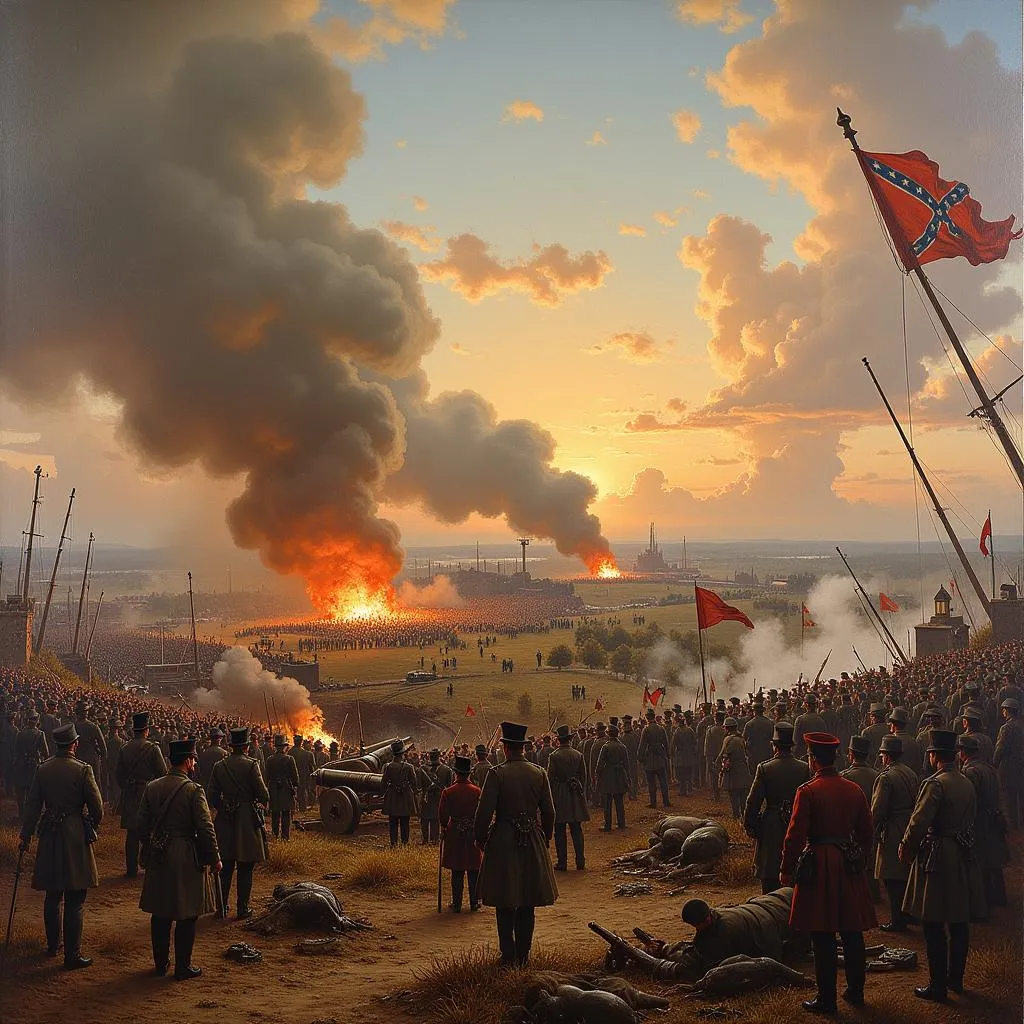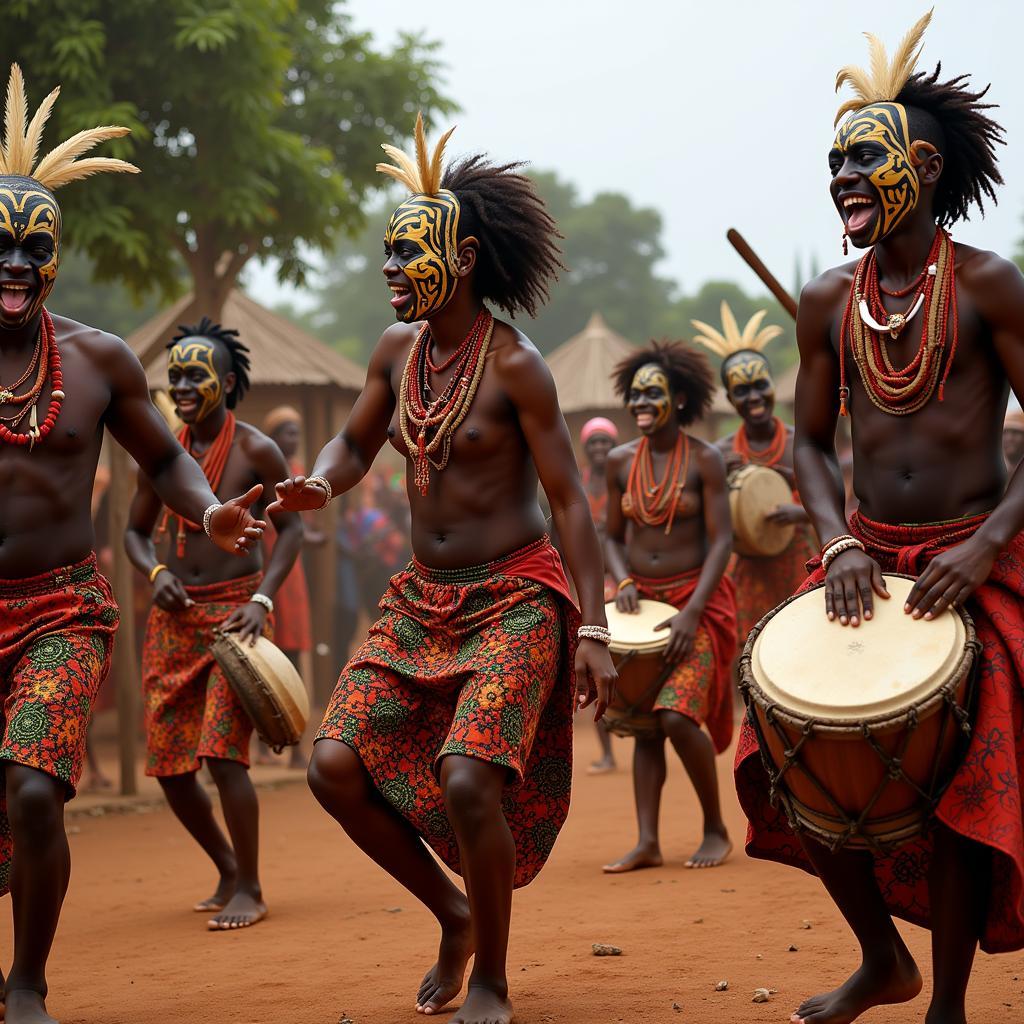Top 100 African American Female Writers: A Century of Literary Brilliance
African American female writers have made invaluable contributions to the literary landscape, weaving narratives that illuminate the Black experience with unparalleled depth and artistry. Their stories, spanning over a century, resonate with themes of resilience, resistance, love, family, and the complexities of identity. This list celebrates the top 100 African American female writers, acknowledging their impact on literature and their role in shaping our understanding of the world.
The Pioneers: Laying the Foundation
The journey begins with pioneers like Phillis Wheatley, whose poignant poetry challenged colonial perceptions of Black intellect, and Lucy Terry Prince, the first known African American poet whose captivating storytelling preserved early Black history. Frances Ellen Watkins Harper, a powerful voice against slavery and for women’s rights, left an enduring legacy through her novels, poems, and essays. These women, trailblazers of their time, paved the way for generations of writers to come.
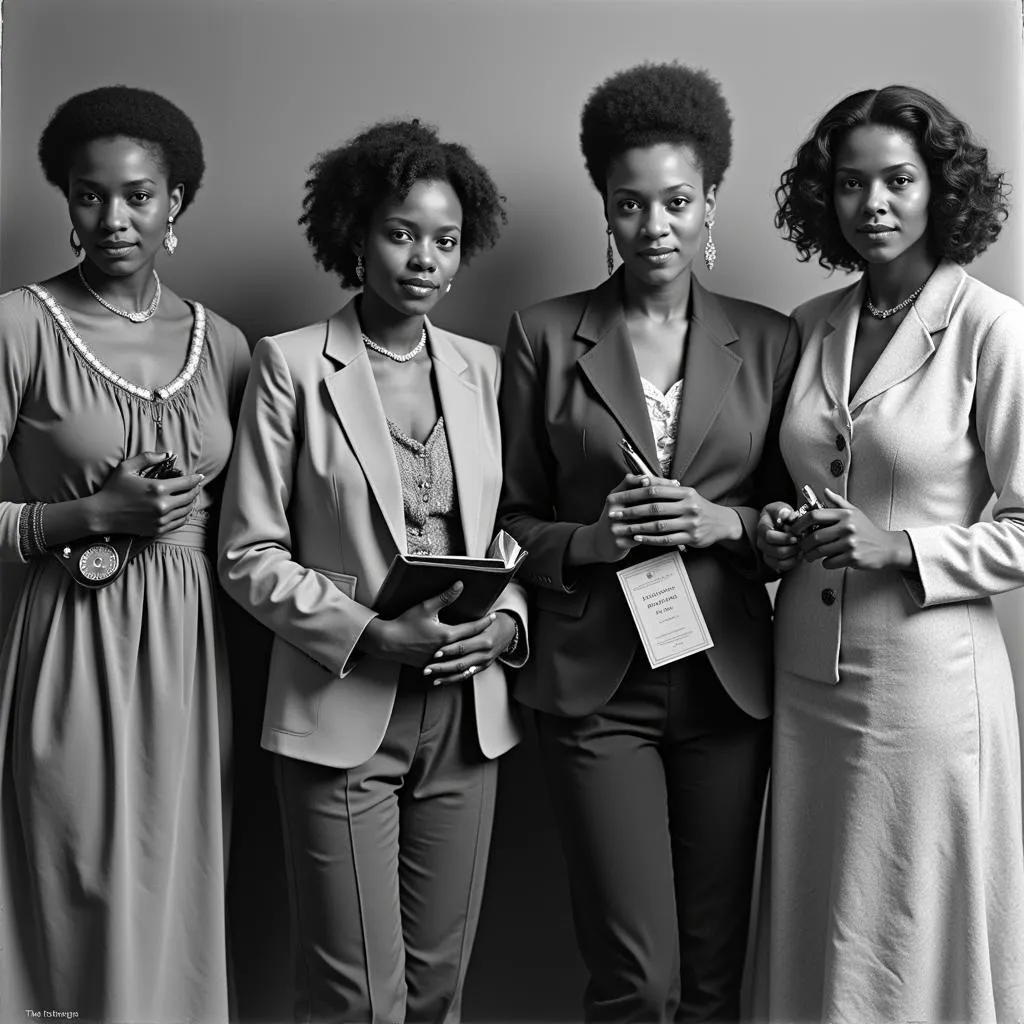 Early 20th Century African American Female Writers
Early 20th Century African American Female Writers
The Harlem Renaissance: A Flowering of Creativity
The Harlem Renaissance witnessed an explosion of Black artistic expression, and at the forefront were writers like Zora Neale Hurston, celebrated for her vibrant portrayal of Black Southern life in novels like “Their Eyes Were Watching God.” Nella Larsen, with her exploration of race and class in “Passing,” provided a nuanced perspective on the complexities of identity. These women, along with contemporaries like Jessie Redmon Fauset and Georgia Douglas Johnson, explored themes of race, gender, and social justice, shaping the landscape of American literature.
The Civil Rights Era and Beyond: Voices of Change
The Civil Rights Movement and its aftermath saw the emergence of powerful voices like Toni Morrison, a literary giant whose novels like “Beloved” and “The Bluest Eye” grappled with the legacy of slavery and racism in America. Alice Walker, renowned for “The Color Purple,” explored themes of racism, sexism, and resilience through her iconic characters. Maya Angelou, with her autobiographical masterpiece “I Know Why the Caged Bird Sings,” gave voice to the experiences of Black women with honesty and vulnerability. These writers, alongside others like Nikki Giovanni and Audre Lorde, used their platforms to advocate for social justice and equality.
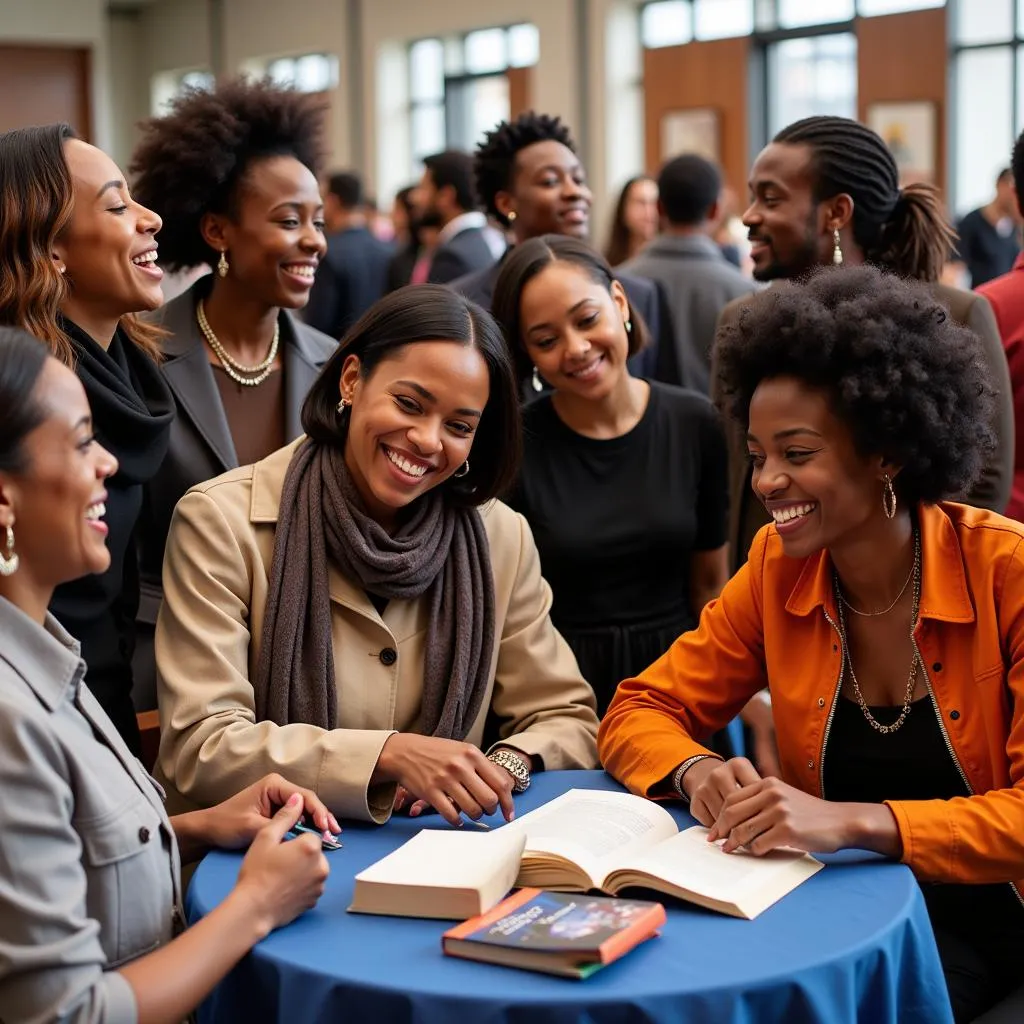 Contemporary African American Female Writers
Contemporary African American Female Writers
The 21st Century: A Tapestry of Experiences
The 21st century continues to witness the rise of exceptional African American female writers like Chimamanda Ngozi Adichie, whose works like “Half of a Yellow Sun” and “Americanah” offer nuanced perspectives on colonialism, immigration, and identity. Jesmyn Ward, a two-time National Book Award winner, explores themes of poverty, racism, and family in her haunting and lyrical prose. Jacqueline Woodson, a prolific writer for young adults, tackles complex issues like race, sexuality, and class with sensitivity and grace. These writers, along with emerging voices like Tomi Adeyemi, Brit Bennett, and N.K. Jemisin, are redefining the literary landscape, pushing boundaries, and inspiring new generations of readers.
A Legacy of Storytelling
The contributions of African American female writers extend beyond their individual works. They have created publishing houses, literary journals, and writing workshops, nurturing the talents of aspiring writers and ensuring that Black voices continue to be heard. Their stories, passed down through generations, serve as testaments to the enduring power of language and the importance of representation.
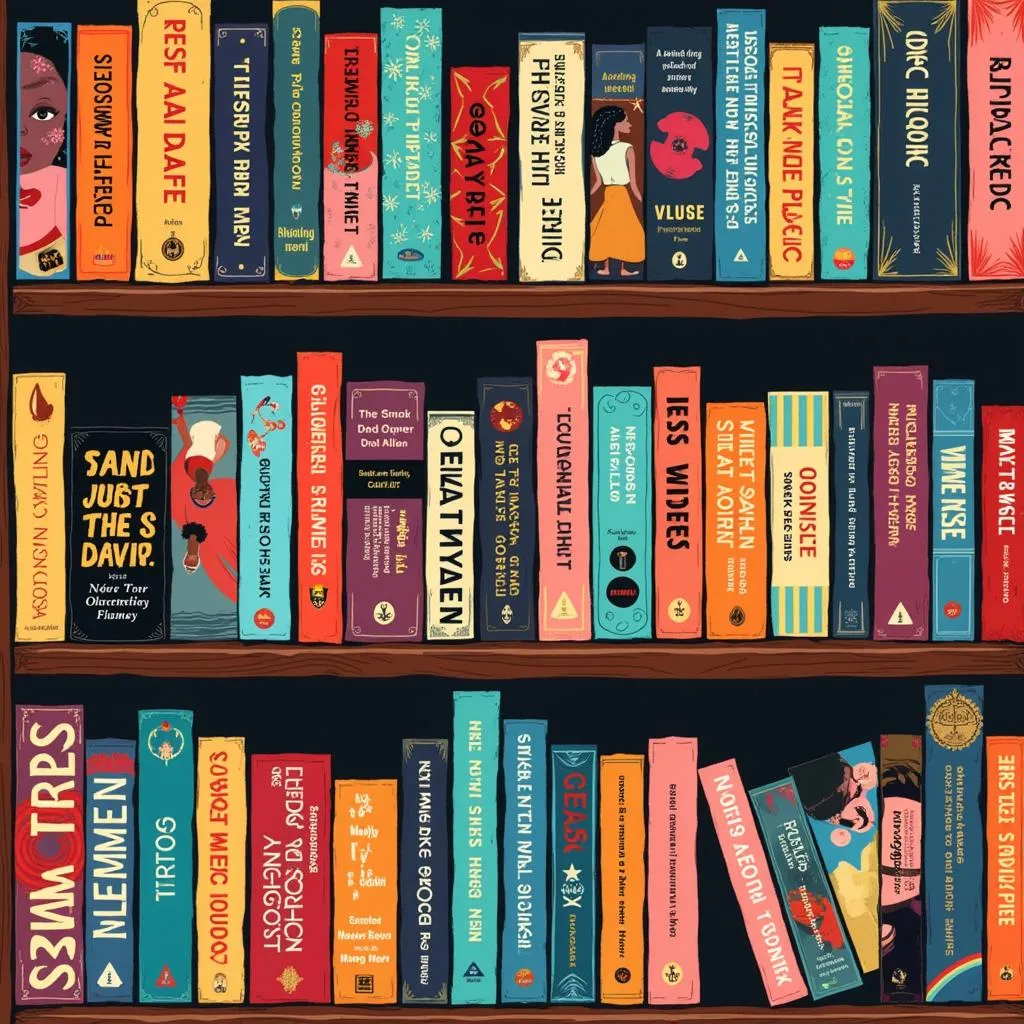 A Bookshelf Celebrating African American Female Writers
A Bookshelf Celebrating African American Female Writers
This list, while not exhaustive, offers a glimpse into the vast and diverse world of African American female literature. By engaging with their work, we honor their legacies, expand our understanding of the world, and celebrate the power of storytelling to inspire, challenge, and transform.
